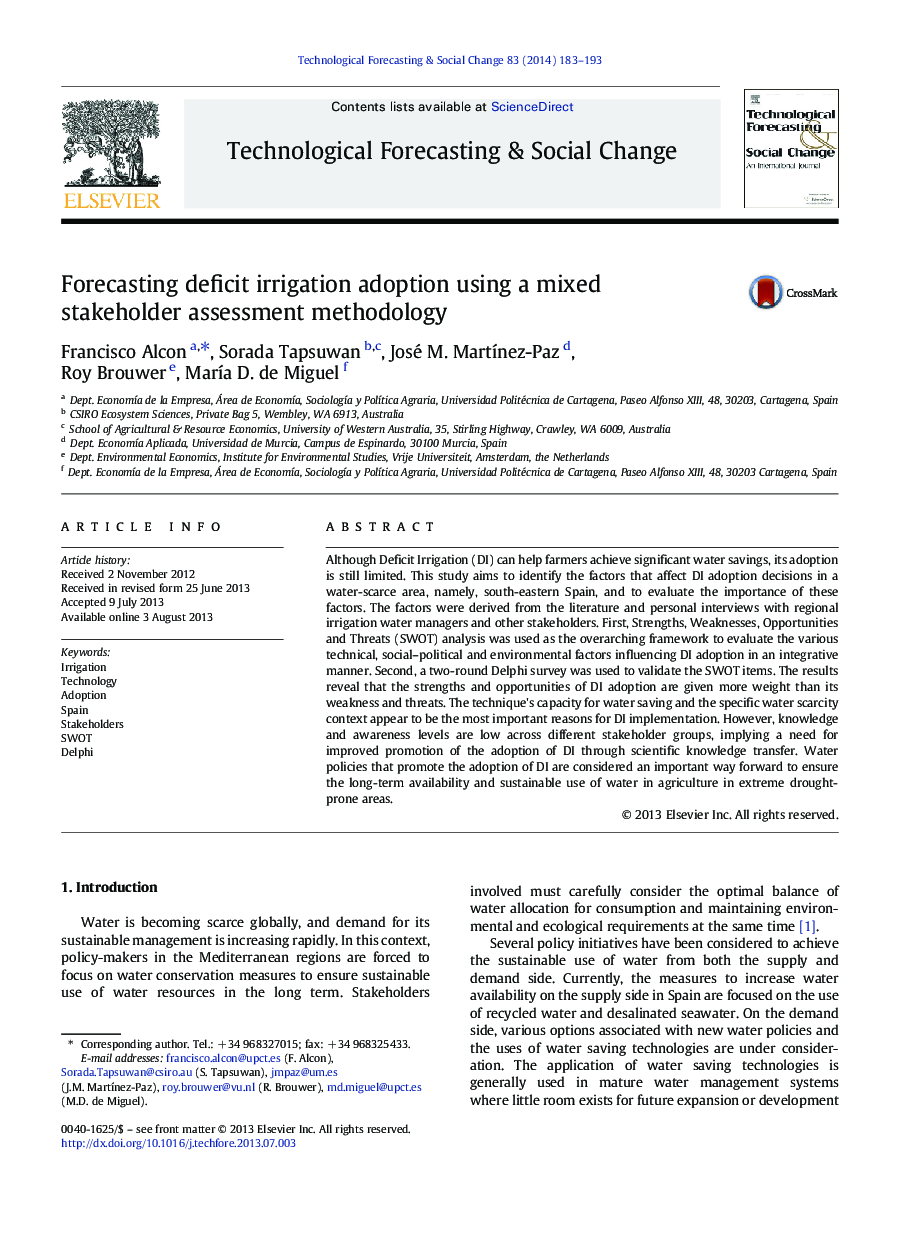| کد مقاله | کد نشریه | سال انتشار | مقاله انگلیسی | نسخه تمام متن |
|---|---|---|---|---|
| 7257412 | 1472417 | 2014 | 11 صفحه PDF | دانلود رایگان |
عنوان انگلیسی مقاله ISI
Forecasting deficit irrigation adoption using a mixed stakeholder assessment methodology
ترجمه فارسی عنوان
تصویب آبیاری کمبود پیش بینی با استفاده از متد ارزیابی متقابل ذینفع
دانلود مقاله + سفارش ترجمه
دانلود مقاله ISI انگلیسی
رایگان برای ایرانیان
کلمات کلیدی
موضوعات مرتبط
علوم انسانی و اجتماعی
مدیریت، کسب و کار و حسابداری
کسب و کار و مدیریت بین المللی
چکیده انگلیسی
Although Deficit Irrigation (DI) can help farmers achieve significant water savings, its adoption is still limited. This study aims to identify the factors that affect DI adoption decisions in a water-scarce area, namely, south-eastern Spain, and to evaluate the importance of these factors. The factors were derived from the literature and personal interviews with regional irrigation water managers and other stakeholders. First, Strengths, Weaknesses, Opportunities and Threats (SWOT) analysis was used as the overarching framework to evaluate the various technical, social-political and environmental factors influencing DI adoption in an integrative manner. Second, a two-round Delphi survey was used to validate the SWOT items. The results reveal that the strengths and opportunities of DI adoption are given more weight than its weakness and threats. The technique's capacity for water saving and the specific water scarcity context appear to be the most important reasons for DI implementation. However, knowledge and awareness levels are low across different stakeholder groups, implying a need for improved promotion of the adoption of DI through scientific knowledge transfer. Water policies that promote the adoption of DI are considered an important way forward to ensure the long-term availability and sustainable use of water in agriculture in extreme drought-prone areas.
ناشر
Database: Elsevier - ScienceDirect (ساینس دایرکت)
Journal: Technological Forecasting and Social Change - Volume 83, March 2014, Pages 183-193
Journal: Technological Forecasting and Social Change - Volume 83, March 2014, Pages 183-193
نویسندگان
Francisco Alcon, Sorada Tapsuwan, José M. MartÃnez-Paz, Roy Brouwer, MarÃa D. de Miguel,
